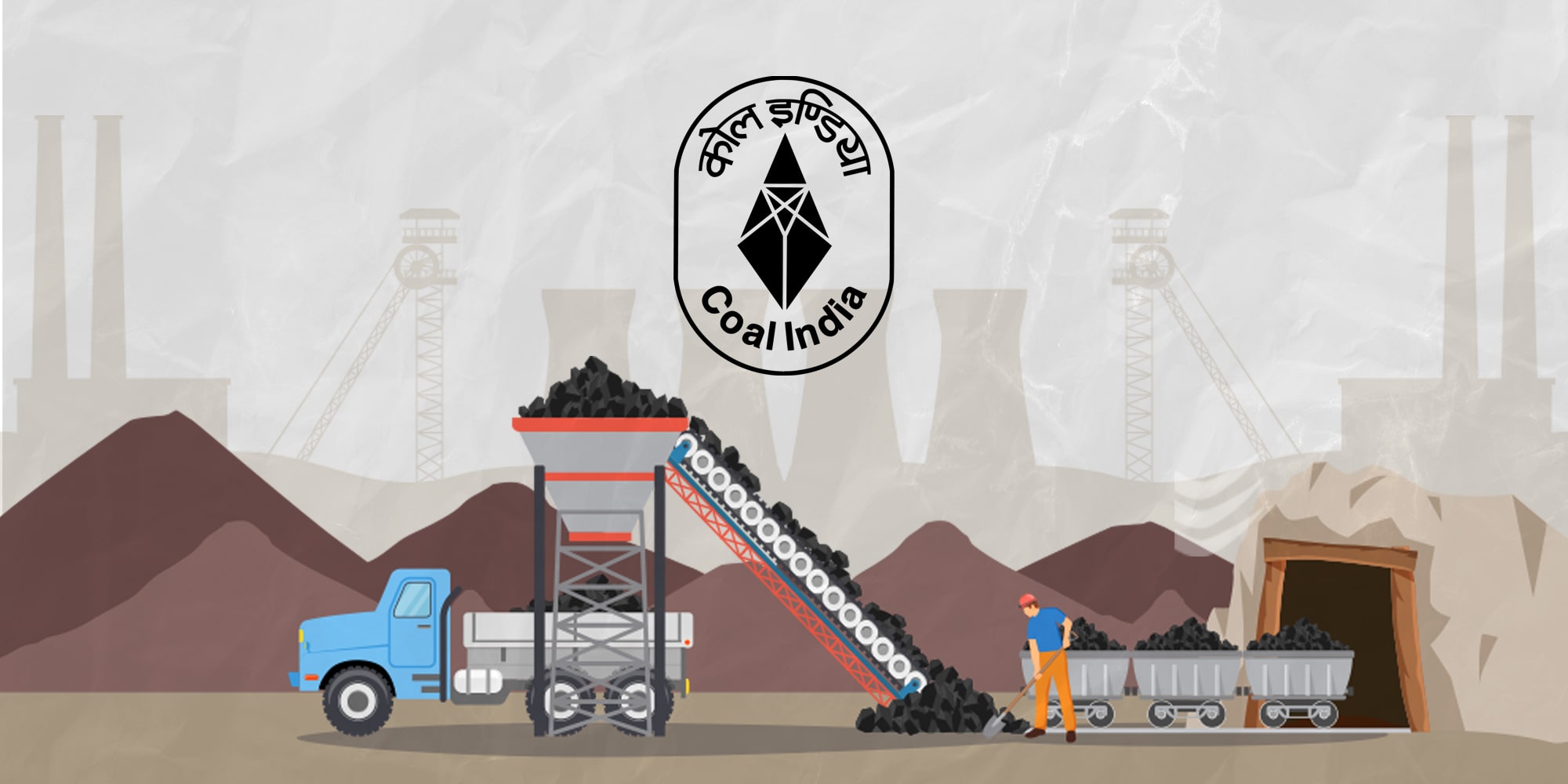India’s Historic Coal Production Triumph in FY 2023-24: Will It Be A Game-Changer for Energy Security?
How India Achieved 997.826 MT of Coal Production: Mission Coking Coal and Its Role in Powering Progress

India has reached a milestone in its coal production journey. The country produced 997.826 million tonnes (MT) of coal in the financial year 2023-24, the highest ever. It grew by a remarkable 11.71% from the financial year 2022-23, which produced 893.191 MT of coal, as revealed in the year-end review of the Ministry of Coal. This essay aims to outline the factors responsible for this earlier success, the dynamics of coal supply between industries, and calculated steps taken by the government towards increasing domestic coal production in the country.
Overview of Coal Production and Supply
During the calendar year 2024, up to December 15, India supplied about 963.11 MT of coal, a notable growth of 6.47% compared to the 904.61 MT provided during the same period in 2023. This reflects the consistent hard work of the coal sector in adjusting to the ever-increasing energy demands. Sectoral distribution is as follows: the Power Sector remains dominant.
Power Sector:
-
- Supplied coal: 792.958 MT (up from 755.029 MT in 2023).
- Growth rate: 5.02%.
Non-Regulated Sector (NRS):
- Supplied coal: 171.236 MT (up from 149.573 MT in 2023).
- Growth rate: 14.48%.

These statistics highlight coal’s critical role in fulfilling India’s maturing energy needs and assisting industrial operations. The Non-Regulated Sector (NRS), which encompasses the cement, sponge iron, and steel industries, has shown exceptional performance. The country is only increasing its reliance on coal to fuel industrialization.
Mission Coking Coal: Enhancing Domestic Production
The significant issues India faced included its strong dependence on imported coking coal, a prime raw material required by India’s steel industry. Considering the problem, the government established the ‘Mission Coking Coal’ as a strategic mission to cut down dependency with higher domestic production. The main goals and targets that the mission offers are:
Domestic Production Targets
The Mission Coking Coal initiative sets aggressive targets to enhance domestic production:
- Raw coking coal production in 2023-24: 66.821 MT.
- Production target for 2024-25: 77 MT.
- Long-term target: Increase domestic raw coking coal production to 140 MT by FY 2029-30.
These targets align with the overall objective of achieving self-sufficiency in steel production. Domestic steel producers depend heavily on imported coking coal, making them vulnerable to cost and supply chain issues.
Subsidiary Contributions
Coal India Limited and its associates will be two major drivers of the rise in coking coal production. At CIL subsidiaries, raw coking coal production has been kept as a challenge to increase from 60.43 MT during FY 2023-24 to 105 MT during FY 2029-30. Such a giant upward shift will reduce import dependency and offer a steady availability of raw materials in the domestic steel industry for years.

Modernization of Washeries
Mission Coking Coal also focuses on modernization. BCCL and CCL have initiated the process of modernizing the ageing coal washeries. Modernized washeries would ensure higher-quality coking coal. Improved recovery rates and reduced waste would help make domestic coal cheaper than imported coal.
Promoting Domestic Coal Usage in Steel Production
Ministry of Coal has developed steps for using domestically produced coal for the steel sector. These key strategies include the following:
- Incriminating increase in supply to the steel sector by way of Non-Regulated Sector Linkage auction route.
- Streamlining the auction process would better encourage using domestically produced coal to replace the import of coking coal from other countries. This would bring long-term advantages by curtailing foreign exchange’s outgo and stabilizing steel producers’ raw material costs.
Private Sector Participation
Private sector participation constitutes one of the mainstays of this initiative. For its part, the coking coal production will benefit from private players. The Ministry of Coal put 14 blocks up for auction to private parties to establish a nationwide supply network. Production is anticipated to begin in 2028–2029. Furthermore, these incentives for private investment ensure diverse production with improvements in mining and process technology.
The Path to Self-Reliance
The push to raise India’s production of coking coal is similar to the country’s goal of self-sufficiency in steel. Since steel demand is growing in line with the increasing infrastructure and industrial development, an increase in coking coal production will be necessary to meet that requirement economically and logistically.
With the modernization of washeries and policy reforms, this change provides a sound foundation. Government initiatives in the form of incentives for the private sector strengthen the direction of the process by which the targets of domestic production are met within scheduled timelines.

Environmental and Economic Implications
The environmental and economic effects of record-breaking coal production, though successful in terms of this story, must not be neglected:
Environmental Concerns
Balancing this continued dependence in India on coal versus renewable sources will still call for balanced usage. Wear upgrades and further improvements in cleaner coal technologies could be advanced. Still, sustainability will require more costs in renewables by tightening the regime against environmental degradations in mining, thereby resulting in more usage.
Economic Benefits
Increased domestic production also means decreased reliance on costly imports, improving the country’s trade balance. Domestic industries such as steel, backed with stable coal supplies, create jobs and boost the economy. Domestic production also leads to price stability for the product because it does not experience price swings in the international market.
Government’s Commitment
This reflects an in-depth commitment to sustainably catering to the nation’s energy and industry needs through the comprehensive policy approach of the Ministry of Coal to boost coking coal domestic production. Modernization, participation by the private sector, innovative reforms, and other aspects lead to a straightforward approach toward long-term self-reliance. India’s steel industry must face stiff global competition, sustain itself, and meet its energy demands internally.

Challenges and Opportunities Ahead
Though the successes of 2023-24 are worth noting, challenges remain. These include:
- Coal mining and environmental concerns.
- Modernization projects are being implemented on time.
- Transitioning to renewable sources while maintaining coal as a stable energy source.
There are opportunities to use technological advancement to make coal mining more sustainable and efficient. Cooperation with international experts and best practices will further help India to build up its capacities in this field.
Future Projections and Strategic Recommendations
To maintain growth and reduce environmental effects, India’s coal industry has to concentrate on the following tactics in the future:
- Advanced Mining Technologies: Adoption of AI-driven mining techniques and automated equipment can enhance productivity and safety while minimizing ecological disruption.
- Renewable Energy Integration: Transitioning part of the energy matrix to renewables like solar and wind can reduce dependency on coal while fulfilling climate commitments.
- R&D Investment: More research in cleaner coal technologies like CCS will decrease the problems caused to the environment.
- Community Engagement: CSR initiatives by local communities surrounding the mining site instill trust and collaboration for sustainable development.
The story of coal production in India for 2023-24 has been resilience and adaptation. The right policies and innovative strategies would enable the country to achieve energy security responsibly while contributing to global climate goals.

Conclusion
India’s coking coal production was at its highest ever, at 997.826 MT in FY 2023-24. With domestic coking coal production set to increase from Mission Coking Coal, government efforts will allow for a reliance that is less heavy on imports so the steel sector can grow rapidly.
As the country continues to grow in terms of greater energy security and industrial development, it becomes even more imperative to pursue the path of a balance between economic growth and environmental sustainability. The fact that the current year marks the record-setting indicates India’s capability to fulfil its energy needs. It comes forward with forward-looking policies and strategic planning toward building a resilient and self-reliant future.



